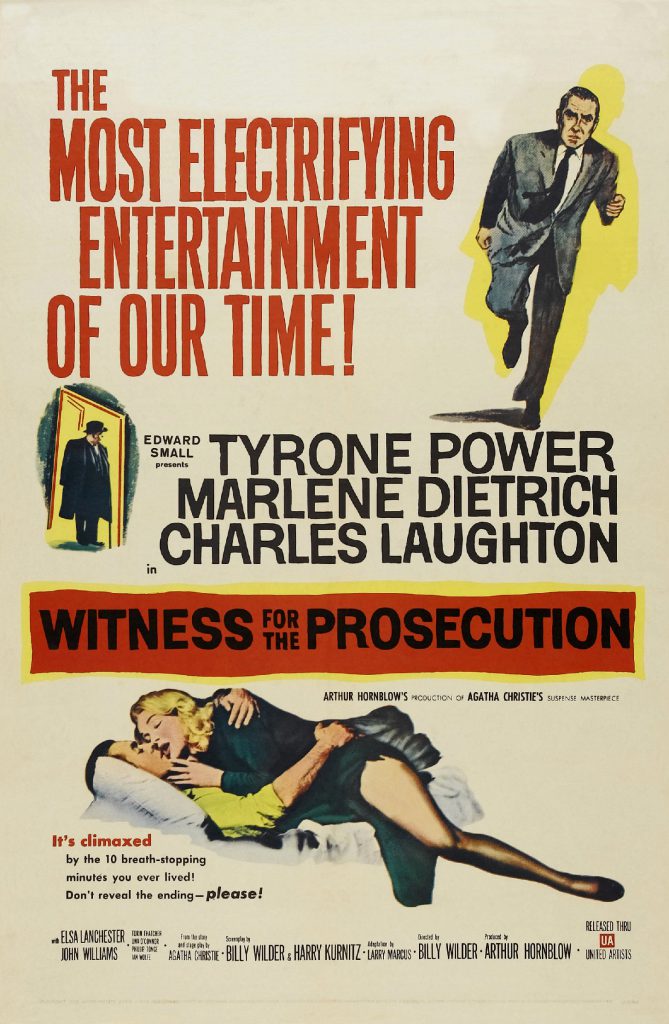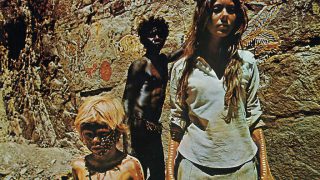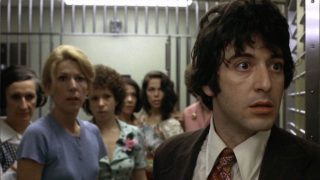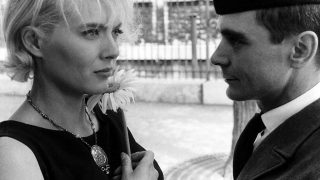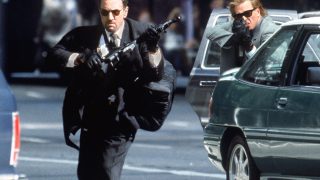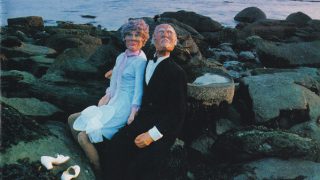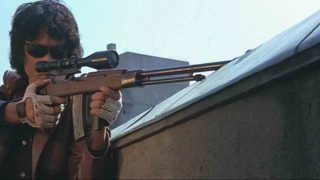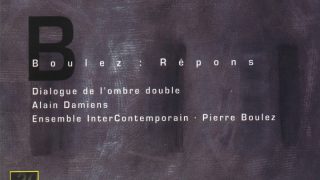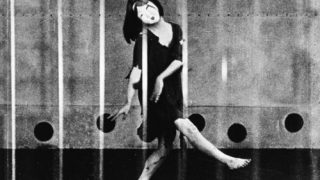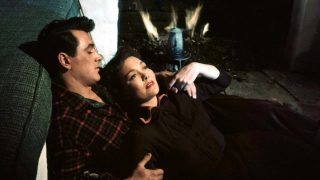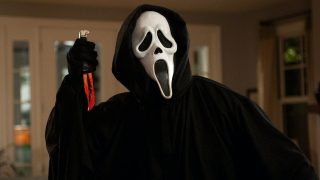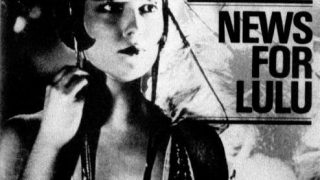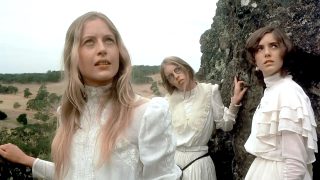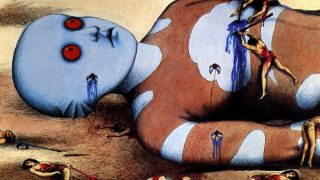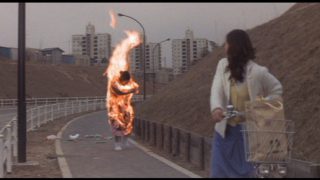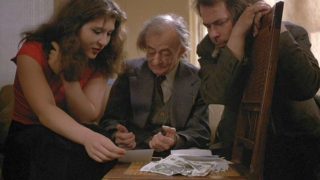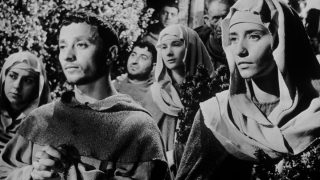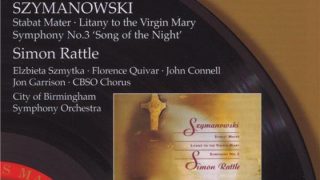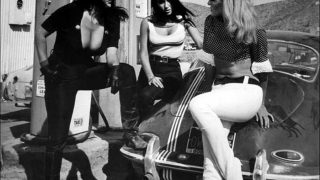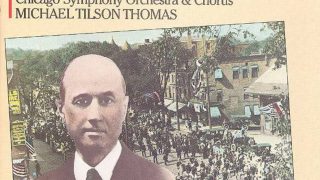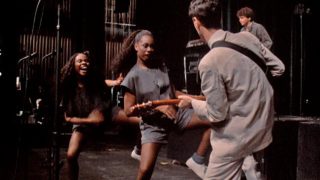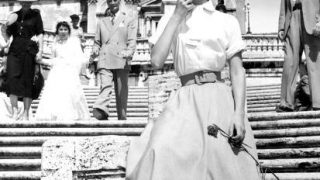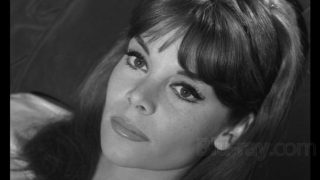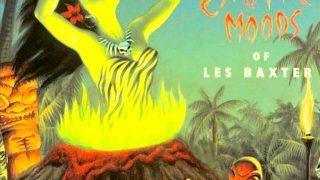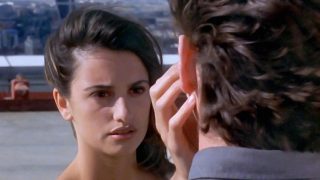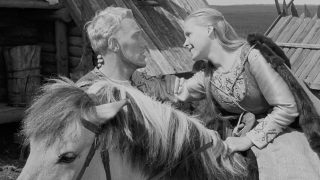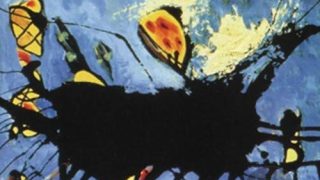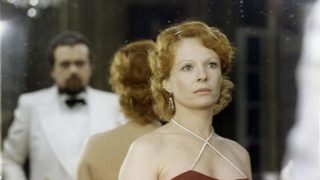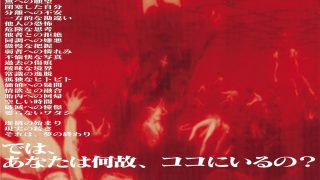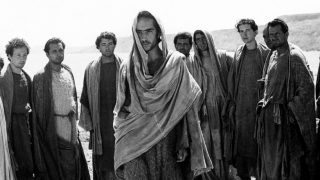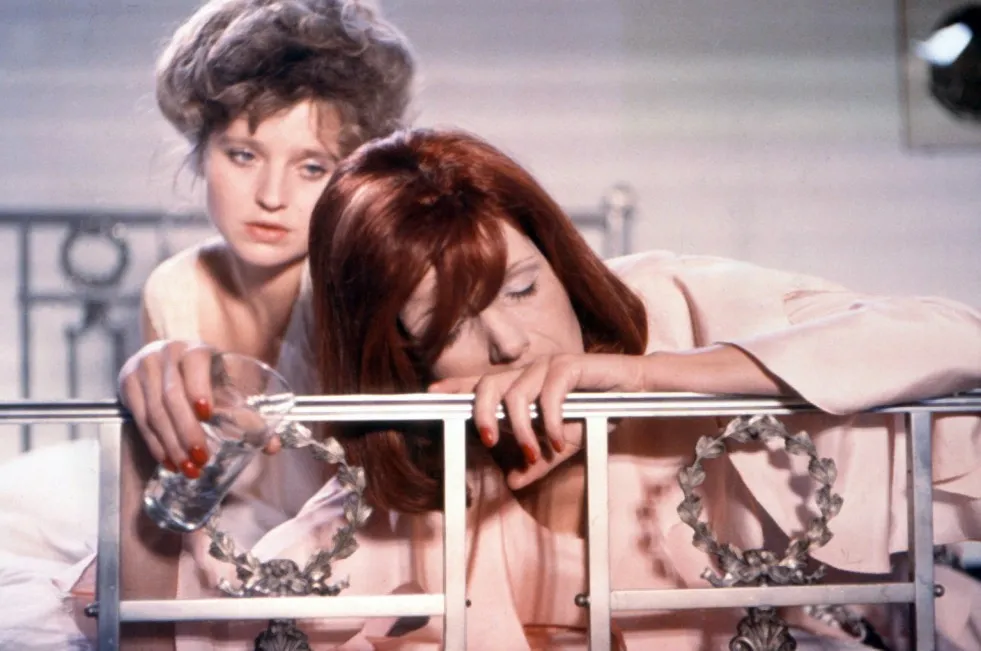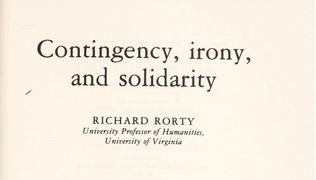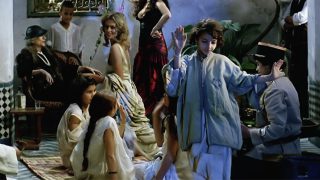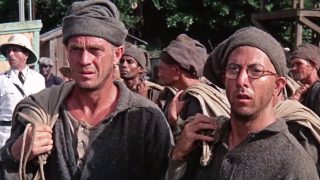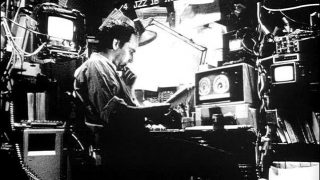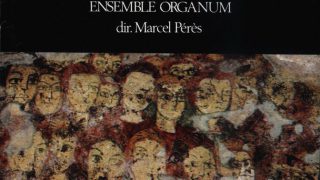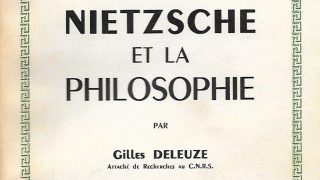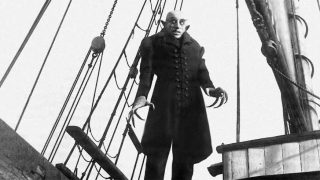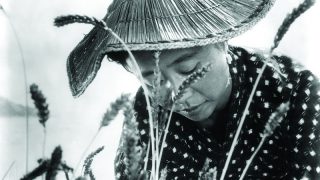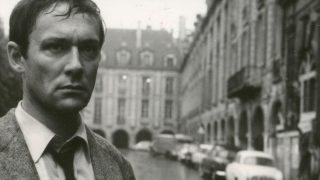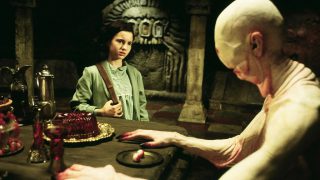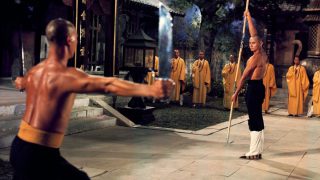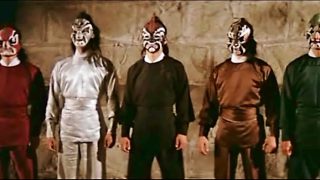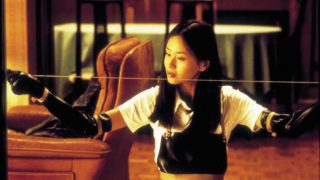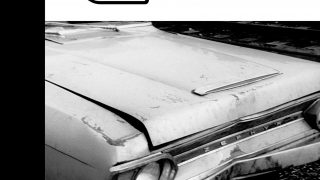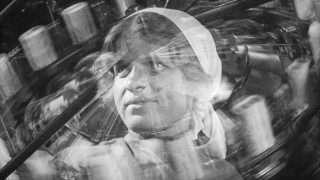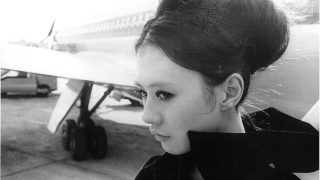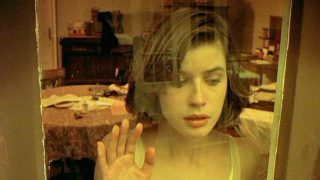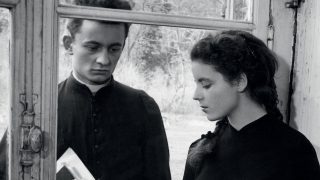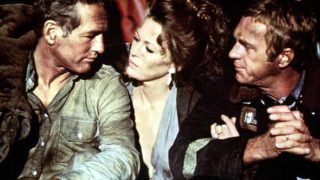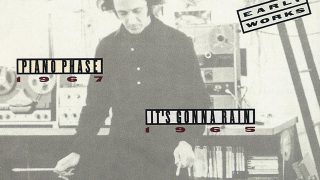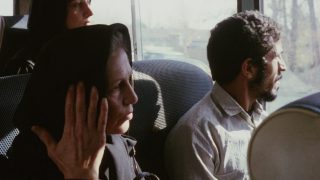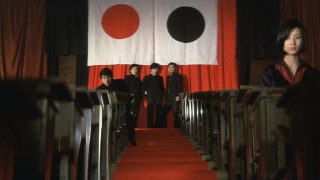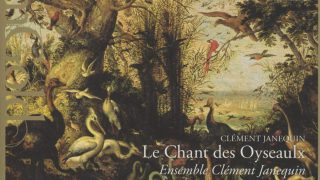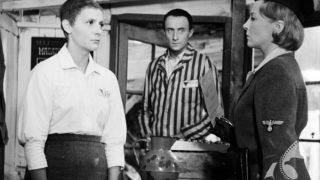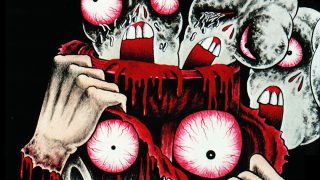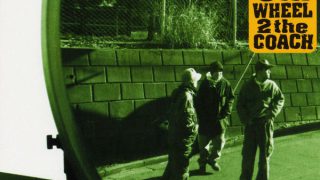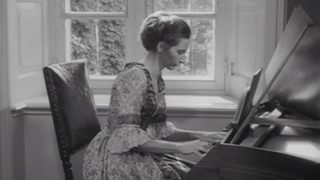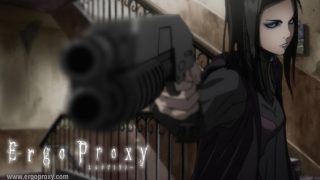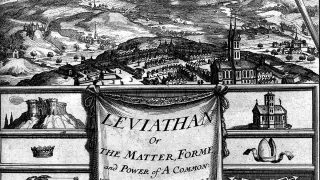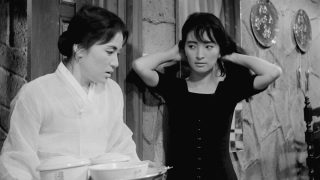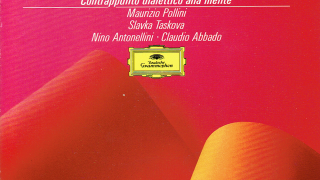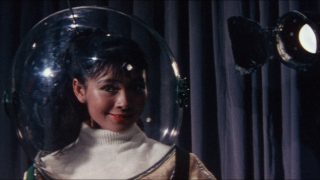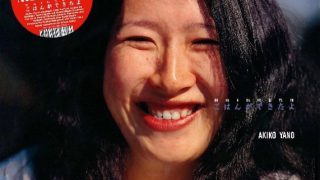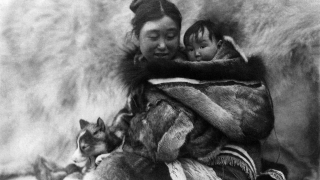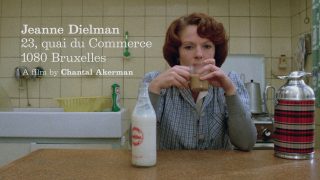Overview
“Witness for the Prosecution” is 1957 American legal mystery film directed by Billy Wilder and starring Tyrone Power, Marlene Dietrich, Charles Laughton and Elsa Lanchester.
Set in London, it depicts dramas of the three people involved in a murder of a wealthy widow: the accused Leonard Vole (Tyrone Power), his wife Christine (Marlene Dietrich), and Sir Wilfrid Robarts (Charles Laughton), the barrister for Vole.
It is a film adaptation of the 1953 play of the same name by Agatha Christie.
Produced by Arthur Hornblow Jr.
Screenplay by Larry Marcus, Billy Wilder and Harry Kurnitz.
Cinematography by Russell Harlan.
Music by Matty Malneck.
The production company is Edward Small Productions.
Distributed by United Artists.
Black & white. 116 minutes.
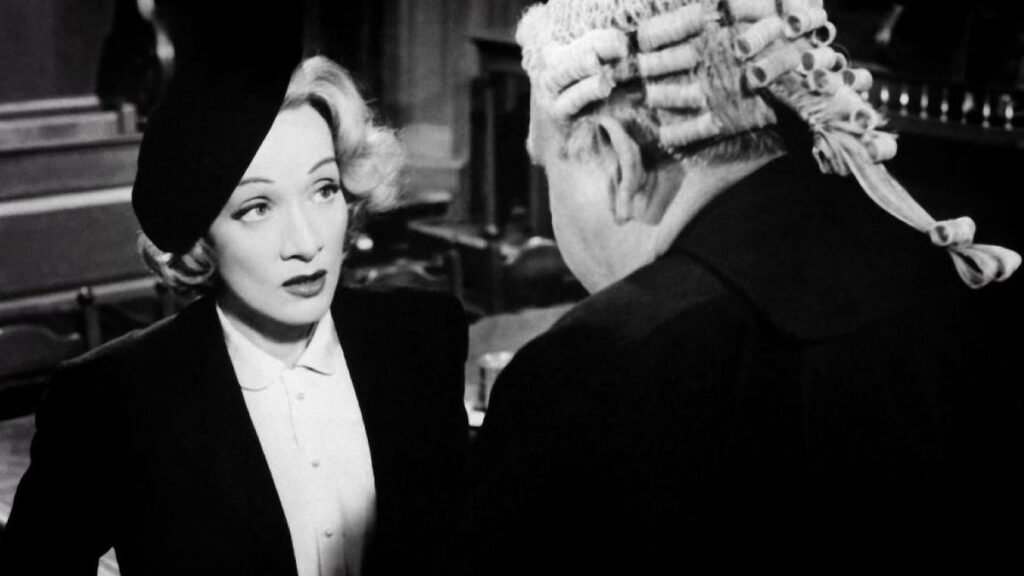
Plot
In 1952, London.
Barrister Sir Wilfrid Robarts had been hospitalized with a heart attack. He is discharged from hospital, being escorted by his private nurse Miss Plimsoll (Elsa Lanchester). Miss Plimsoll tries to monitor his health, supervising him all the time.
A wealthy widow, Mrs. Emily Jane French (Norma Varden) is murdered. She had lived with her housekeeper Janet McKenzie (Una O’Connor) after her husband passed away.
Her acquaintance Leonard Vole is suspected of murdering her.
Vole is a military veteran and is currently unemployed. He is married to a German woman named Christine. He met her when he was stationed outside Hamburg as part of the Royal Air Force at the end of World War II.
Vole asks Sir Wilfrid to defend him.
Vole claims his innocence, but it comes to light that Mrs. French had named him as her heir. Vole is arrested on suspicion of murdering Mrs. French.
Vole’s wife Christine visits Sir Wilfrid, and she provides an alibi for Vole. She says to Sir Wilfrid that she is married to a German man living in East Germany and she is not actually Vole’s wife.
Though Sir Wilfrid’s doctor has warned him not to take any criminal cases, Sir Wilfrid takes charge of Vole’s defense.
Sir Wilfrid meets Vole in jail. Vole talks about the first time he saw Christine, who was an actress, in a German nightclub in 1945.
Vole’s trial is held in the Old Bailey (the Central Criminal Court).
The prosecutor Mr. Myers (Torin Thatcher) calls Chief Inspector Hearne (Philip Tonge), Mrs. French’s housekeeper Janet McKenzie, and Police Constable Jeffries as witnesses for the prosecution, and he accumulates evidence against Vole, but Sir Wilfrid cleverly defends Vole.
On the third day of the trial, Sir Wilfrid is surprised that Christine is called as a witness for the prosecution. She testifies against Vole.
The prosecutor Mr. Myers reveals that Vole visited a travel agency with a brunette about a week before the murder and he made inquiries about luxury cruises.
That night Sir Wilfrid gets contacted by a mystery woman who speaks with a Cockney accent. She provides him with letters written by Christine to her lover named Max.
The letters say that she can marry Max if she pins the murder on Vole by giving false testimony.
In the closing argument, Sir Wilfrid presents Christine’s letters as evidence. Vole wins an acquittal. Christine is arrested for perjury.
After that, Christine starts talking to Sir Wilfrid about the truth of the matter.
Commentary
The original “Witness for the Prosecution” is a stage play adapted by Christie from her short story initially published as “Traitor’s Hands” in 1925. The play was performed in London in 1953 and in New York (Broadway) in 1954.
Wilder incorporated comedy elements into the film and made Christie’s masterpiece of legal mystery into an entertainment film in his style.
Sir Wilfrid’s private nurse, Miss Plimsoll is an original character created for the film. Laughton’s wife, Elsa Lanchester played the role of Miss Plimsoll, and she won Best Supporting Actress – Motion Picture in the 15th Golden Globe Awards.
Una O’Connor, who had played Mrs. French’s housekeeper Janet MacKenzie in the 1954 Broadway production, reprised her role in the film.
This became Tyrone Power’s last film because he died suddenly from a heart attack while shooting his next film “Solomon and Sheba” (1959).
The film is known for its double surprise ending. In the end of the film, a narrator announces:
“The management of this theater suggests that, for the greater entertainment of your friends who have not yet seen the picture, you will not divulge to anyone the secret of the ending of Witness for the Prosecution.”
The flashback scene of the first meeting between Vole and Christie in a nightclub includes references to the films directed by Josef von Sternberg and starring Marlene Dietrich: Christie wearing trousers comes from the film “Morocco” (1930). The name of the club “Die blaue Laterne” (The Blue Lantern) is a reference to the film “The Blue Angel” (1930).
In the flashback scene of the nightclub, Dietrich as Christie sings “I May Never Go Home Anymore”, the English version of “Auf der Reeperbahn nachts um halb eins / On the Reeperbahn at Half Past Midnight”, a 1912 song composed by Ralph Arthur Roberts. “I May Never Go Home Anymore” was released on EP by London Records in 1958. Dietrich mainly worked as a singer from the 1950s to the early 1970s.
In 2008, the American Film Institute (AFI) selected the film as the sixth in the courtroom-drama category of their “AFI’s 10 Top 10” list.
